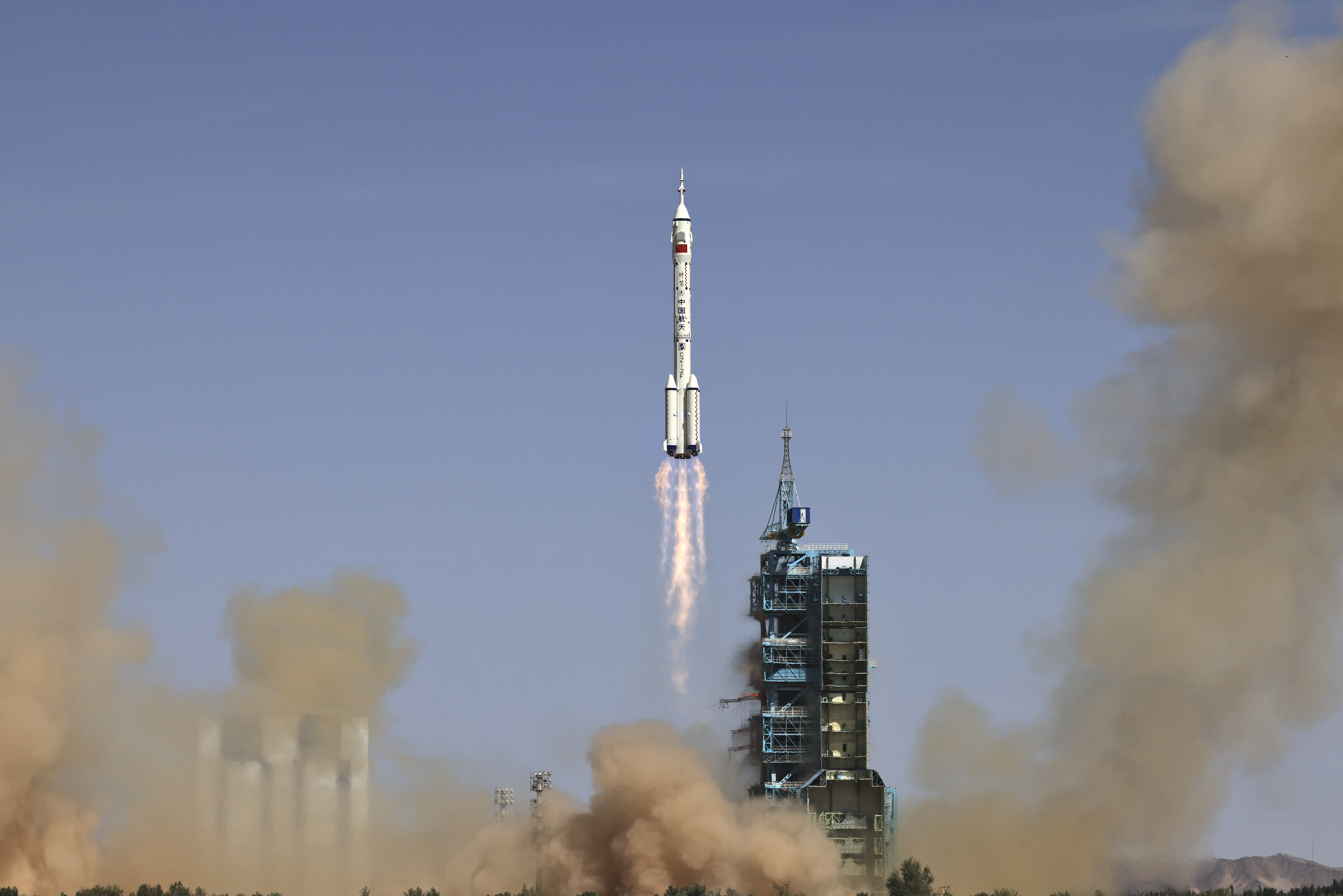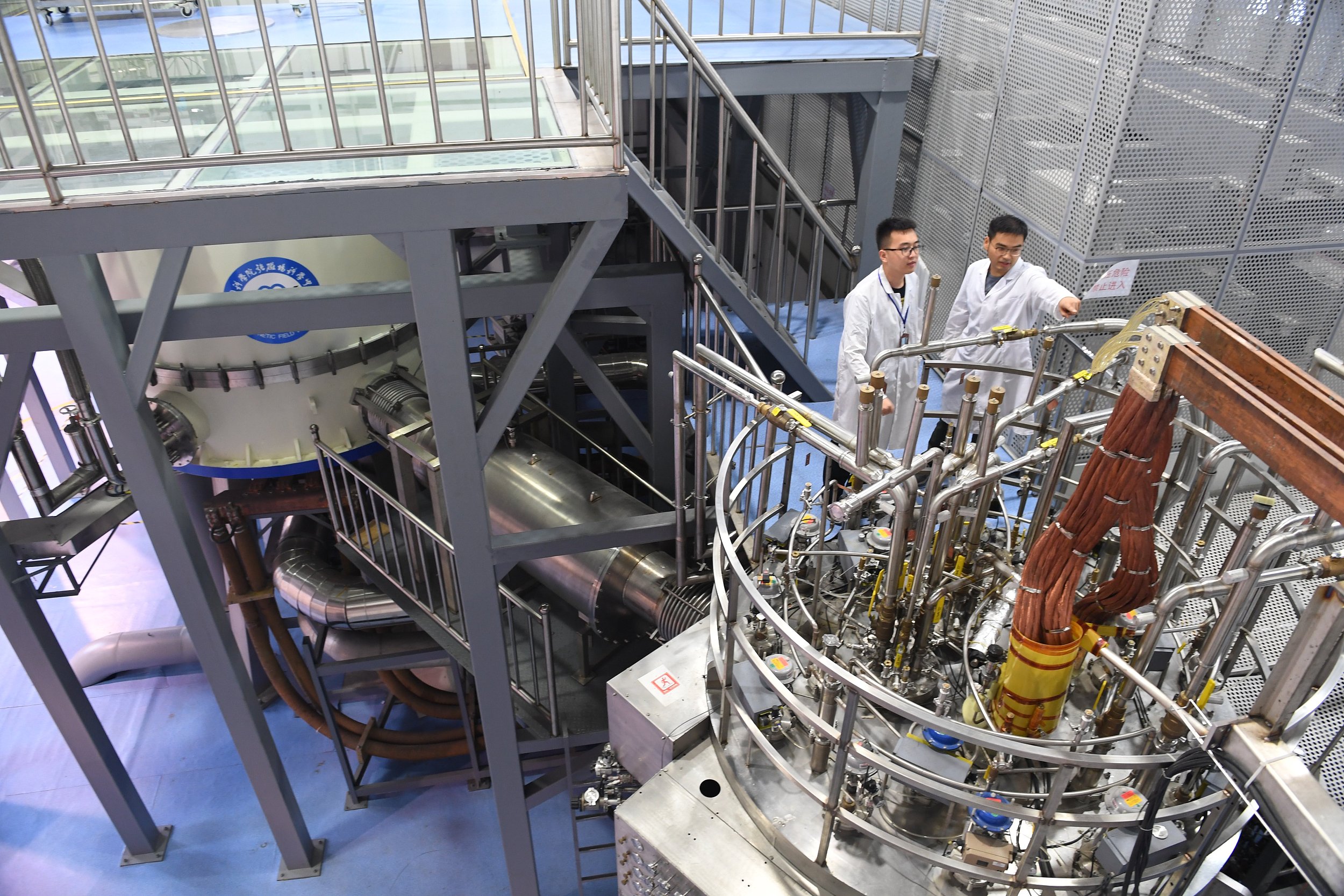China's Sci-tech Strength Rockets Within 10 Years
Shenzhou-14 manned spacecraft was launched by Long March-2F rocket from Jiuquan, Gansu on June 5. (PHOTO: XINHUA)
By Staff Reporters
Historical changes in its sci-tech development over the past ten years, have successfully transformed China into an innovative country, said Wang Zhigang, minister of science and technology at a recent press conference. This is confirmed by the country's soaring ranking on the Global Innovation Index released by the World Intellectual Property Organization.
Rising from 34th in 2012 to 12th in 2021 on the list, China is now an important participant in global frontier innovation, and a crucial contributor to the solutions of problems encountered by the world.
The country has conducted several missions to space. Manned spacecraft were successfully launched and the construction on Tiangong, China's own space station, has begun. Footprints have also been left on the moon and Mars.
Deep diving in the ocean was also achieved, with the manned submersible Fendouzhe reaching a depth of over 10,000 meters in the Mariana Trench, the world's deepest natural trench.
In the field of gigantic infrastructure China has completed the impressive Hong Kong -Zhuhai -Macao Bridge, the longest bridge-cum-tunnel sea crossing in the world, and Baihetan hydropower station, one of the world's largest hydropower station currently under construction.
Facilities like the Five-hundred-meter Aperture Spherical radio Telescope (FAST) and Experimental Advanced Superconducting Tokamak (EAST) also lifted China's basic research to the next level.
The sci-tech achievements have also greatly improved people's livelihoods. A lot of arid, semiarid, saline and alkaline land has been transformed to generate more crops, and seed quality was improved to adapt to different types of land.
Zhashui, a small county in northwest China's Shaanxi province, was lifted out of poverty thanks to development of its edible fungi industry, with the help of technologies and an academician from the Chinese Academy of Engineering.
In addition to building its own sci-tech strength, China has also worked openly with the international community, establishing sci-tech cooperation relationships with 161 countries and regions, and contributing to issues facing the entire globe, such as climate change response, food security and health care.
To achieve this progress has taken an enormous amount of effort. The total R&D investment of the country has increased from 1.03 trillion RMB in 2012 to 2.79 trillion RMB in 2021, and the proportion of R&D investment in GDP went up from 1.91 percent to 2.44 percent.
Reforms have been made in sci-tech institutions, including the evaluation and incentive systems, management of R&D projects and funds, revision of the law promoting commercialization of sci -tech achievements, and the law on progress of science and technology.
The contributions of Chinese scientists in this process also cannot be neglected. Their persistence in tackling sci-tech conundrums and pursuit for the ultimate truth of science and technology made the achievements possible.
"We will stick to sci-tech reform to continuously promote the development of China's sci-tech innovation," said Wang.



